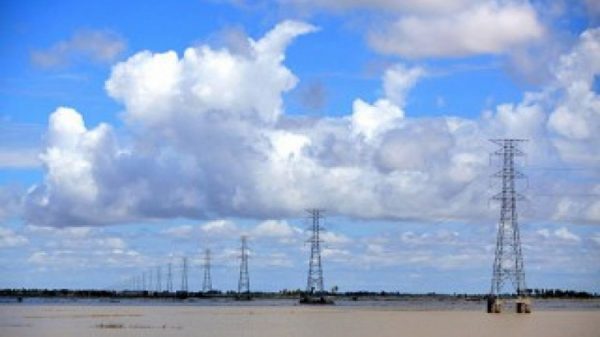Influence determines who gets paid first in power sector

Shawdesh Desk:
The Bangladesh Power Development Board owed Tk 44,338 crore to power producers at the end of the last fiscal, as the national power company could clear only half of its dues to power producing companies.
Last fiscal, the power development board cleared 49.7 per cent of its total dues.
Over 78 per cent of the bills paid by the immediate past Hasina government went to influential companies, revealed an analysis of data released by the BPDB.
While the payment rate was more than 62 per cent with private companies, overseas companies received 57 per cent of their dues, followed by public companies getting paid only 24 per cent of their outstanding bills.
Many companies with less hold on the government received no payment at all or only 1 per cent or less of what they spent in generating power in 2023–24.
The BPDB paid more than Tk 43,882 crore to 115 power producers, revealed the official data, with 78 per cent of the payment—Tk 34410 crore—going to 24 companies.
‘The list of the highest paid companies exposed influence mattered,’ said Hasan Mehedi, member secretary, Bangladesh Working Group on External Debt, a platform of green activists.
‘Who had the power to exert pressure got paid first. It was as simple as that,’ he pointed out.
The highest paid power producer last year was Mohammadi Group, founded by former Dhaka City Corporation mayor Anisul Huq, who was elected to the position on Awami League ticket.
Mohammadi Group was paid Tk 922.65 crore—88.6 per cent—of its overall bill of Tk 1,041.89 crore.
The third highest payment, which is 86.8 per cent of total dues, went to Ena Group, founded by former Awami League lawmaker Enamul Haque.
The list of highest paid companies included SAlam Group, Summit Group, Orion Group, Anlima Group, Confidence Group, Energypac, United Group, and Hosaf Group, all got above 60 per cent of their dues in the last fiscal.
The foreign companies who received more than 60 per cent of their dues were India-based Adani Group and NTPC, UAE-based EMA Power, China-based Power China, HTG Group and CMC, and Sri Lanka-based LakDhanavi Group.
In terms of money, the Adani Group received the highest Tk 5,918.32 crore, or 64.3 per cent of its overall bill of Tk 9,202.18 crore.
The Indian public company NTPC received the second highest amount of Tk 3,959.14 crore out of its total bill of Tk 5,725.48 crore.
The two Indian companies took home 30 per cent of the total payment the BPDB has made to both the domestic and foreign power producers.
The three Chinese companies, on the other hand, accounted for almost 13 per cent of the total payment made last fiscal.
Bangladesh’s United Group turns out to be the highest paid Bangladeshi power producer last fiscal receiving Tk 3,130.64 crore, or 67 per cent, of its total bill of Tk 4,682.35 crore.
Summit Group received Tk 2,705.79 crore, or 62.6 per cent, of its total Tk 4,322.93 crore dues.
Orion Group received Tk 1,258.26 crore, or 72 per cent, of its total Tk 1,748.61 crore bill.
During the now-ousted Hasina’s rule for over 15 years, Bangladesh was steered on the path of aggressive expansion of fossil fuels, leading to the building of around 100 power plants, almost all of which were built without competitive bidding.
The power purchase deals were awarded under the supervision of then head of the government Sheikh Hasina, often through one-to-one negotiation between the state minister Nasrul Hamid and the companies.
The business of power production turned out to be an investment without risk. The capacity charge that invariably came with the power deals allowed power investors handsome return regardless of the electricity they produced.
In the 14 years since assuming power in 2009, the Awami League government paid total Tk 1.04 lakh crore in capacity charges, according to the Ministry of Power, Energy and Mineral Resources.
The highest paid companies are also among the companies that received most of the capacity charges.
The BPDB’s annual loss rose astronomically since the Awami League government had assumed power.
The loss quadrupled in the 2022–23 financial year, compared with the year before, mainly because of a dramatic increase in capacity charge and fuel cost.
The power development board recorded a loss of only Tk 635 crore when the party came to power in 2009. The loss jumped to Tk 11,765.50 crore in 2022–23.
Frequent energy price hikes became inevitable over the Awami regime triggering the worst economic crisis in decades amidst the government taking a $4.97 billion loan from the International Monetary Fund.























Leave a Reply